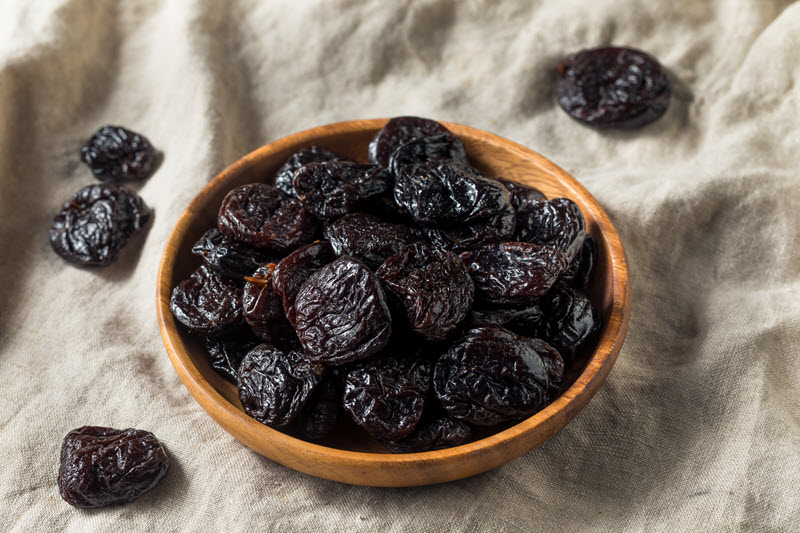Prune juice/prunes

Dried plums or prunes are the prime ingredients in prune juice. Plums have high sugar content, so they can be dried without going through a fermentation process. Likewise, prunes are high in fiber, helping you regulate your bladder and bowels.
Regarding iron content, a cup of prune juice has 3.02 mg of iron, half the iron in a 100-gram serving of beef. A serving of prune juice also has vitamin C (10.5 mg), calcium (31 mg), magnesium (36 mg), niacin (2 mg), and small amounts of beta-carotene and vitamin B6. On the other hand, a cup of pitted prunes contains 1.6 mg of iron.
Prunes and prune juice have a laxative effect, so nutritionists caution against eating too many prunes or drinking too much prune juice. A serving of prunes is typically half a cup, which may contain 10 to 12 prunes according to the size of the fruit. On the other hand, a serving of prune juice is usually one cup. Based on current research, you can eat five to six prunes daily. Otherwise, you can drink one cup of prune juice per day.










